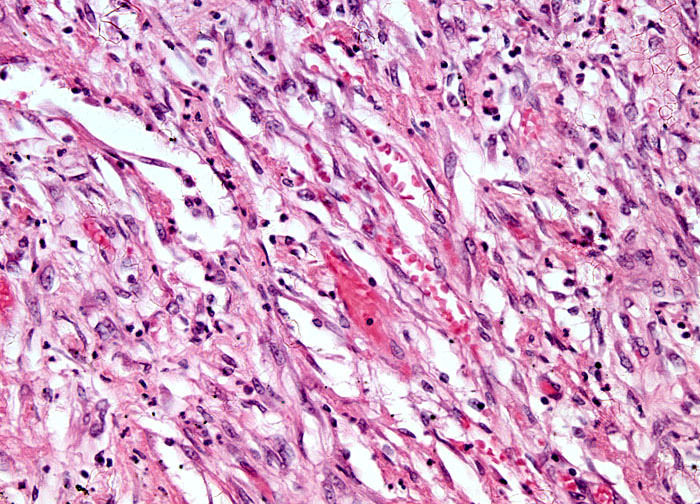
Lung Abscess at 20x Magnification
The bacterium Staphylococcus aureus is one of the many microorganisms that can cause lung abscesses. Staphylococci are Gram-positive anaerobes that characteristically aggregate into clusters reminiscent of grapes. Sometimes S. aureus first leads to pneumonia before resulting in complications, including abscess formation. S. aureus can also result in abscesses via other means. For instance, intravenous drug users can transmit the microorganism via the blood, which often results in multiple abscesses in various parts of the lungs. Abscesses involving S. aureus can be difficult to cure because the bacterium is resistant to many antibiotic medications. Consequently, sensitivity tests are often utilized to determine the best drug available to treat particular strains of the microorganisms.













